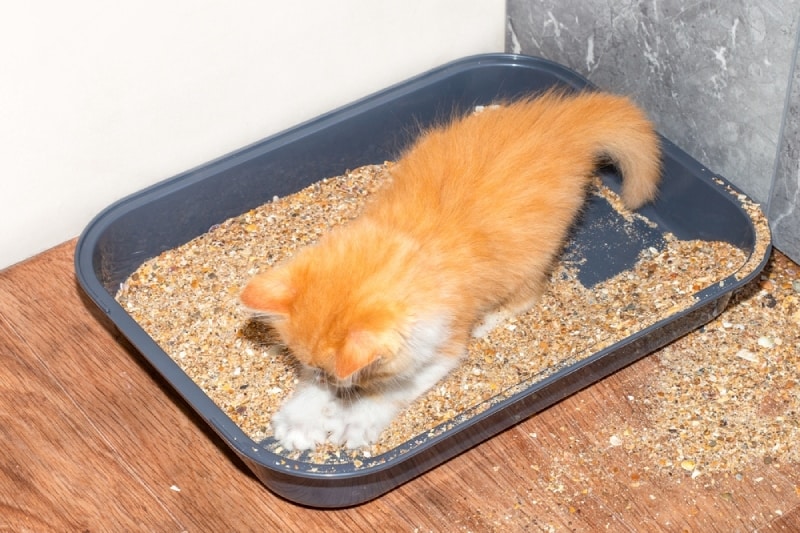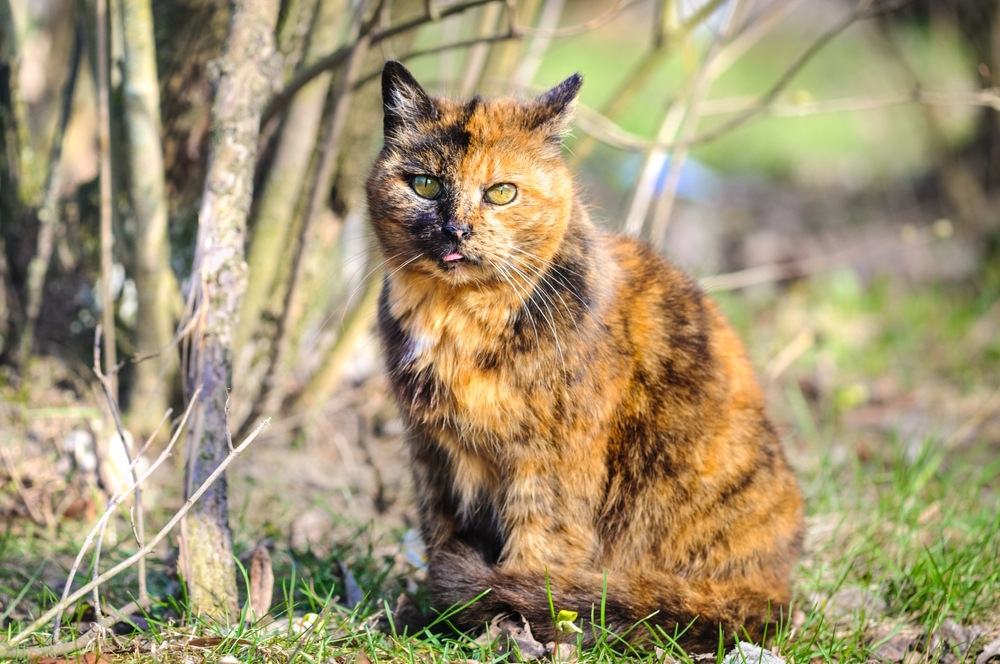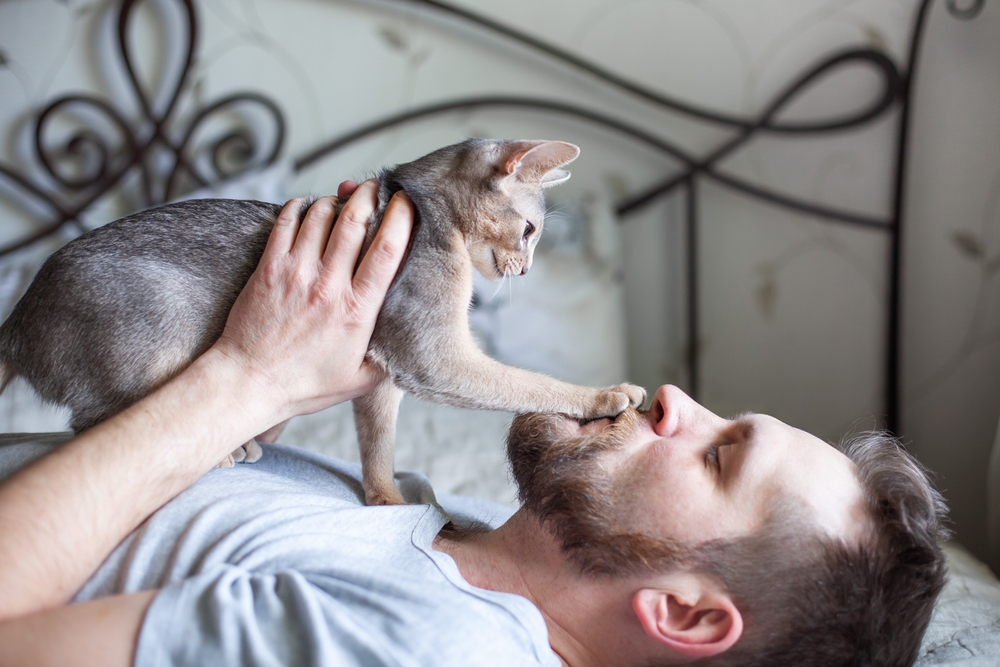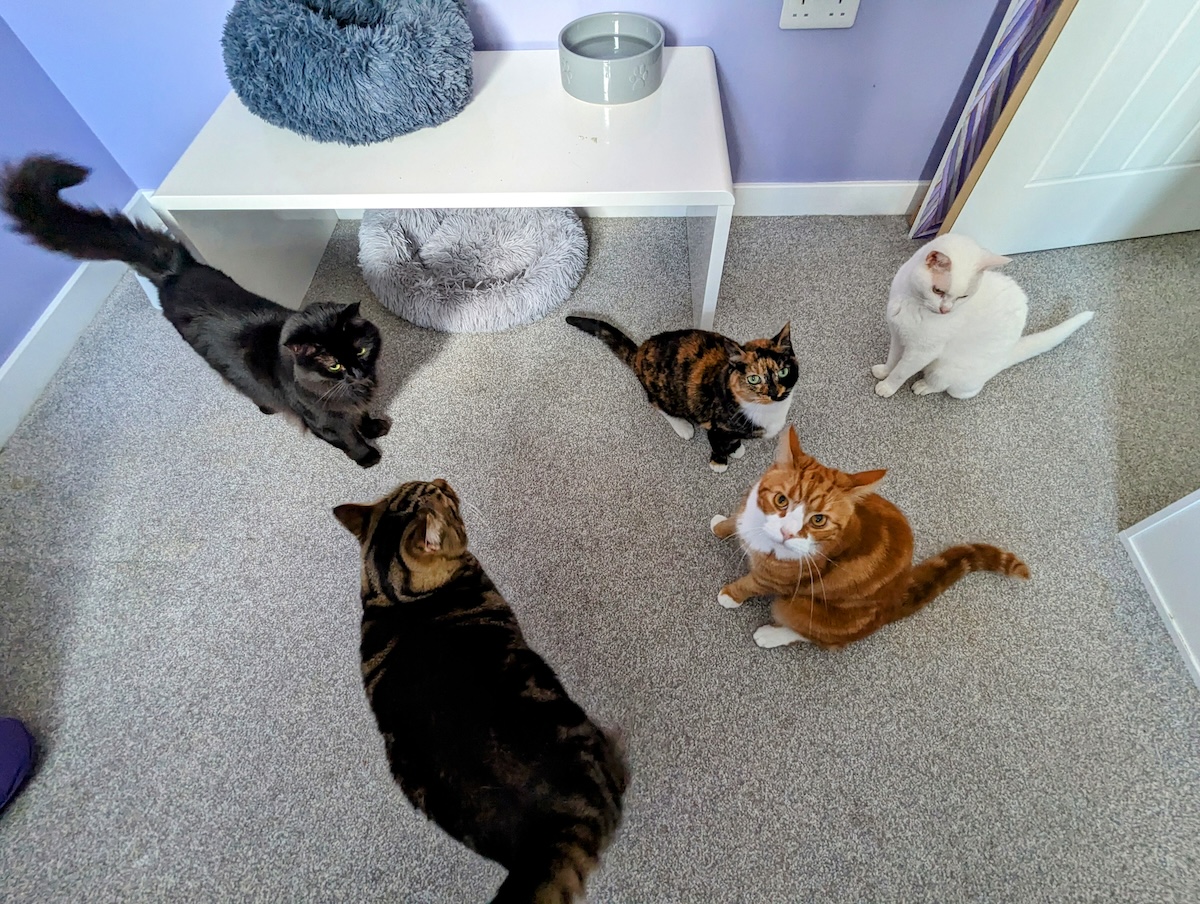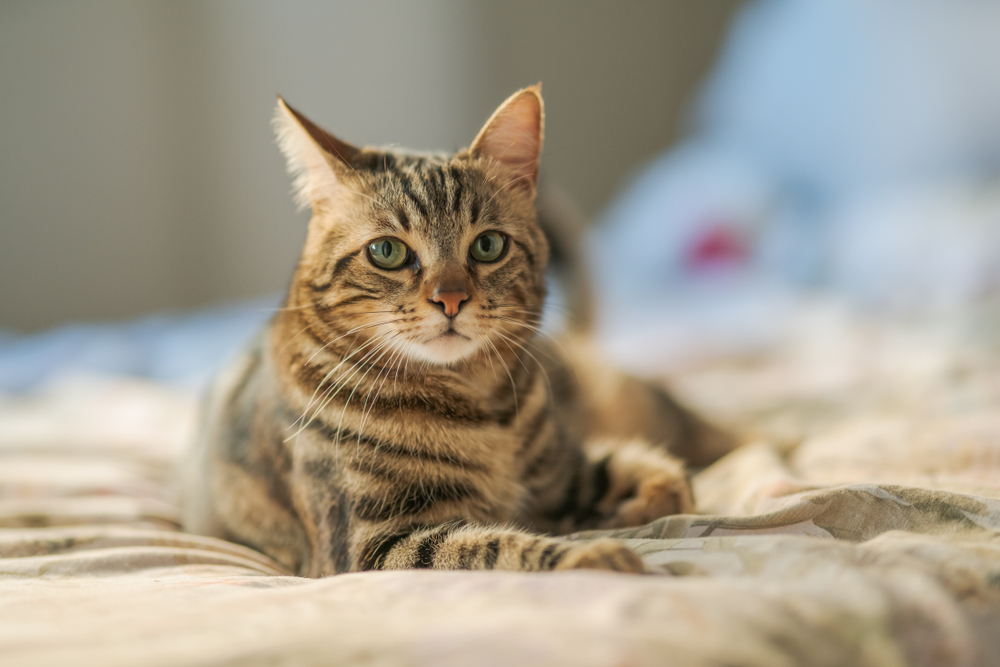As humans, we really don’t consider rolling on the bathroom floor something that we want to do. Therefore, when our cats decide to roll around in the litter box, it can strike us as pretty revolting. However, there are several reasons why this behavior makes sense for cats.
Read on below to find out more!

The 4 Reasons Why Cats Roll Around in the Litter Box
- Scent Marking: Cats have many scent glands spread throughout their body. When they roll around in the litter, they may be depositing their scent on the litter to mark it as their territory. This behavior can serve to establish their presence and ownership of the litter box. Perhaps not so surprisingly, many cats are quite possessive about their litter box.
- Curiosity: Some cats may roll around in their litter box out of sheer curiosity. This is most common in young kittens that are still learning the ropes of how to “be a cat”. Such kittens may also curiously try to sample their litter at times.
- Comfort and Play: Some cats find the texture of the litter enjoyable to roll in. It may feel cool and soothing to them, similar to how they might roll on a soft carpet or grass. Rolling in the litter could also be a form of play or a way for them to relieve stress and boredom. Sometimes, cats just do things because they can!
- Female Cats in Heat: Intact female cats that are in heat love to roll over, especially when they feel any sort of contact or pressure on their lower back or rump. If your litter box has a cover or cat-door that touches your cat’s back as she enters the litter box, she may roll over if she’s in heat.
Luckily, most of these reasons are nothing to worry about. Sudden strange behavior paired with other signs does indicate that you should visit the vet. It is also best to have your female cats spayed.
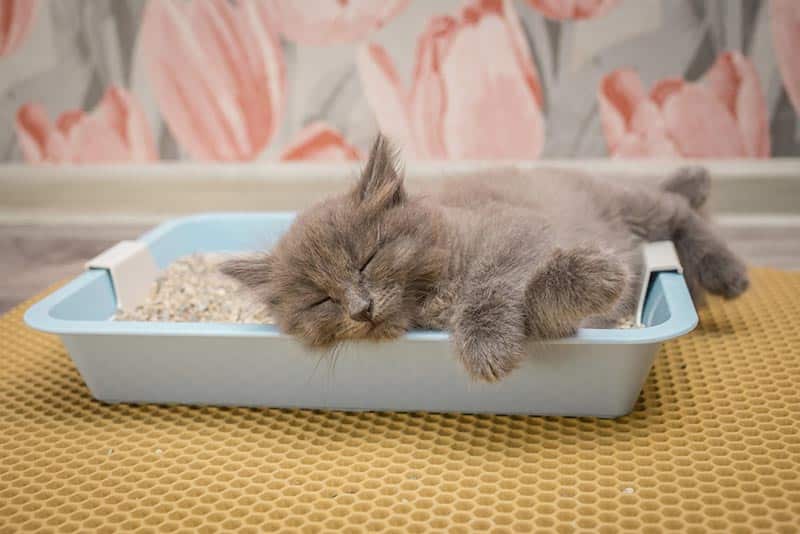
Why Is My Cat Playing in the Litter Box?
A cat playing in their litter box isn’t uncommon behavior. There are many reasons why your cat may like to play in the litter box, and there probably isn’t much you can do to convince them otherwise.
Some felines like the texture and enclosed space of the litter box. Others are drawn to the texture of the litter. The granules in the litter may feel interesting or enjoyable under their paws, much like a sandy beach or soft dirt might be enticing for a human to play in.
They may see the box as somewhere to “hide,” like any other box. While you may imagine that cats wouldn’t want to play near their bathroom, they don’t think of their litter box like we think of the toilet. The litter box may be somewhere cats feel safe, which may be why they decide to play there.
Some cats find rolling or digging in the litter a soothing or stress-relieving activity. This can be especially true for cats that are anxious or experiencing changes in their environment. You may notice that your cat spends extra time in the litter box whenever something stressful happens, like a change in their routine. In that case, your cat is probably using the litter box as a safe place to be alone and destress.
They may also see the substrate as something to “hunt.” Cat litter moves around and rolls pretty easily, and cats may see it as an invitation to play. This is especially true for younger cats, who are especially prone to playing with random things.
Cats can also get bored and seek new places to play, including the litter box. In that case, you can try to provide your cat with new toys and enrichment activities.
How Do I Stop My Cat from Playing in the Litter Box?
While your cat may not mind playing in the litter box, it may not be something you want them to do. Even if you don’t stop your cat from playing in the litter box, we highly recommend keeping the litter box clean. You don’t want your cat getting dirty or covered with waste.
If you don’t want your cat playing in a litter box, here are some options that you can try:
- Experiment with different types of litter and see if your cat has a preference. Sometimes, cats only like to play with a particular kind of cat litter—not all kinds of cat litter. Therefore, you may be able to keep them from playing in it if you change it to something they don’t like quite as much.
- Consider providing more enrichment. Sometimes, cats need more toys to play with so that they have more options beyond their litter box. Consider new toys, more playing sessions, or interactive toys to help your feline find something to do.
- Switch to a covered litter box. Making this switch may make the litter box a “less fun” place to play for some cats. Alternatively, you can switch to an uncovered litter box if you’re already using a covered one. It all just depends on what you’re currently using and what your feline prefers.
- Move the litter box to a quieter area. If your cat is using the litter box as a way to jump out at people, consider placing it somewhere quieter. That way, your cat may not be as inclined to play inside the litter box.
- When in doubt, contact your vet. Playing in the litter box isn’t directly tied to any health problem. However, practically all health problems can cause strange behaviors, like a cat hanging around the litter box more than they might otherwise. Therefore, you may need to contact your vet if you notice unusual behavior.
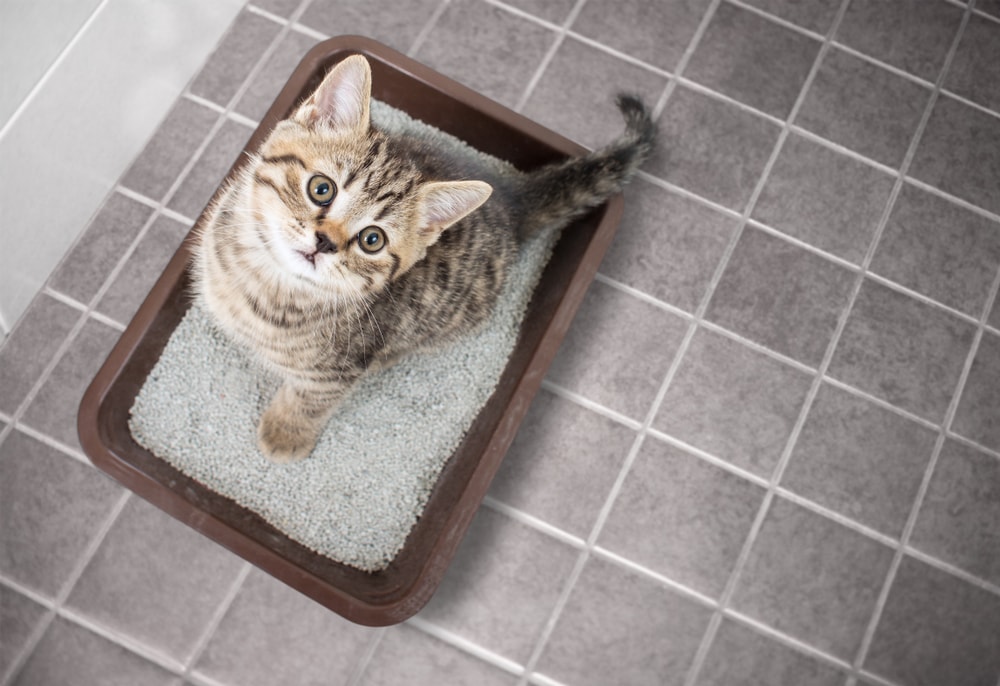
Conclusion
Most of the time, you don’t need to prevent your cat from rolling around in the litter box. Many cats simply like to lay around their litter box and may even enjoy playing in it. Some cats feel safest in their litter box, which can lead to them rolling and playing in it.
Still, most cat owners don’t want their feline rolling in the litter box, and there are a few ways to discourage the behavior. For instance, you can switch the type of litter or box you use. Cats may only like one specific texture, for instance, and may not want to roll around if the texture changes.
Luckily, this behavior is rarely a sign of something serious. However, when in doubt, you should speak to your vet. In some cases, strange behaviors like this may be due to an underlying health problem.
Featured Image Credit By: Natalia Kokhanova, Shutterstock

